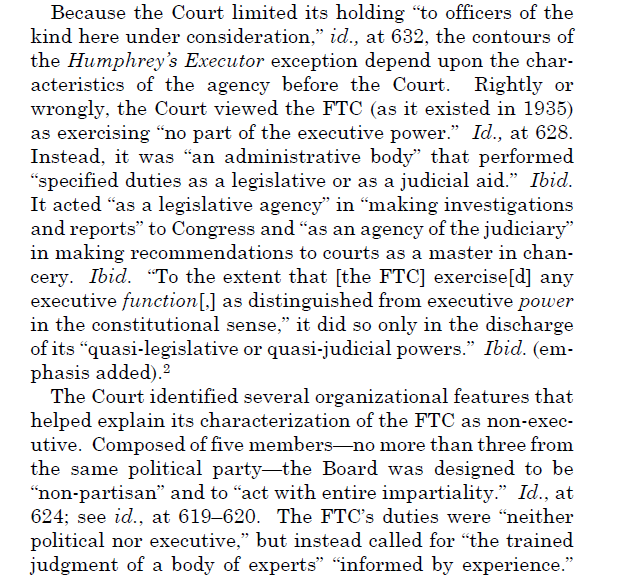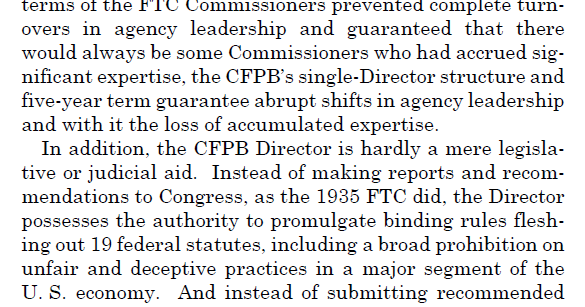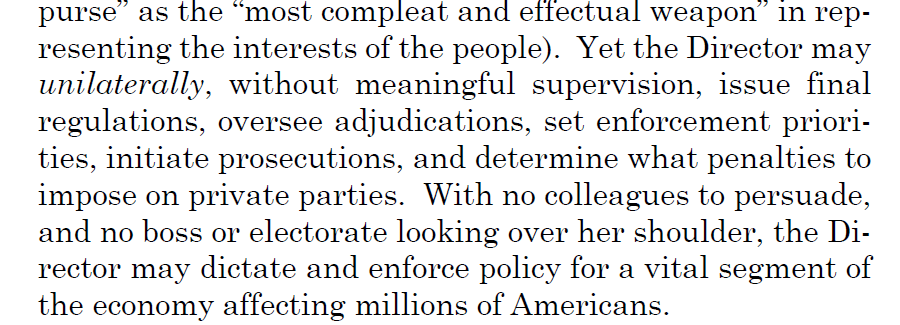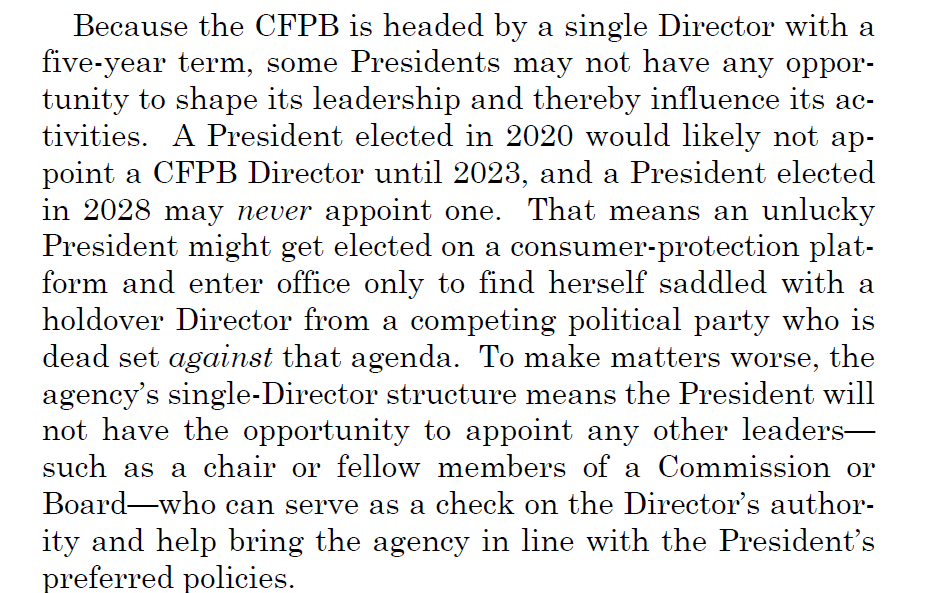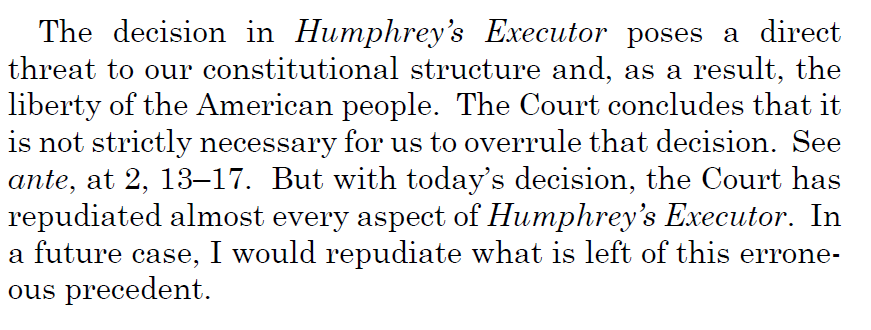Major admin law decision today, finding that the structure of the CFPB is unconstitutional. Decision seems narrowly drafted to exempt independent agencies like FERC under Humphrey& #39;s Executor, but the effort to cabin the case feels a bit contrived. https://www.supremecourt.gov/opinions/19pdf/19-7_n6io.pdf">https://www.supremecourt.gov/opinions/...
Humphrey& #39;s involved the FTC, and the way the Court describes the case is generally applicable to FERC, FCC, SEC as well - "administrative body," "quasi-legislative"/"quasi-judicial powers", 5-member multiparty makeup that& #39;s theoretically nonpartisan...
But see n.2 - basically admits this is a legal fiction, and acknowledges this power is executive in nature.
And what, in practice, distinguishes a single-director CFPB w/ "abrupt shifts" in leadership changes vs. "nonpartisan" admin agencies with new chairs/majority? FCC - net neutrality; FERC - MOPR; etc. Both party-line decisions, inconsistent w/ past admin& #39;s appointees.
And per the last clip, it& #39;s not like FERC/FCC only present reports to Congress a la the 1935 FTC - lots of authority on a range of statutes affecting "major segment of the U.S. economy."
Really, the only difference is the CFPB& #39;s single director! FERC commissioners - not elected; not "meaningfully controlled". And FERC also doesn& #39;t depend on annual approps (funded by regulated industries!). https://www.ferc.gov/industries-data/electric/general-information/annual-charges">https://www.ferc.gov/industrie...
Won& #39;t go through this point-by-point, but literally every aspect of the "unconstitutional" powers the majority cites for CFPB here is true of FERC/FCC, except for the single Director vs Commission structure.
Although, in fairness, the single Director/5-yr term pointed out here is distinct. Every President gets to appoint some members to multi-member commissions. But the notion of CFPB/non-CFPB agencies seems faulty...
Decision stops short of eliminating the CFPB itself, finding that the inability to remove a single director is unconstitutional, but leaving underlying question of whether the civil investigation was valid up to the lower court.
Stealth issue - the severability analysis here is likely to pop up in the Affordable Care Act litigation this fall. In Seila, plurality (4 Rs except Thomas) is willing to treat director issue as severable.
Thomas takes the Seila majority to the logical extreme, and would overturn Humphrey& #39;s executor. Would render many agencies unconstitutional based on their exec power, not just leadership structure.
Wow. Thomas (+ Gorsuch) would find that indep. agencies pose a "serious, ongoing threat to our Government& #39;s design". Flat-out calls them "unconstitutional."

 Read on Twitter
Read on Twitter